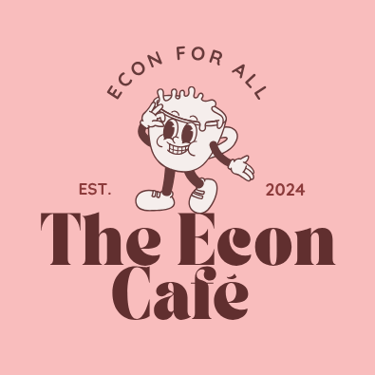How Labubus turned me into a Capitalist Gremlin (Part 1: The Blind Box Hustle)
BLOGFEATURED
They’re tiny, chaotic, and oddly adorable- but Labubus might be teaching us more about economic addiction and blind boxes than we realize.
Labubus, furry monster keychains found in blind boxes from Pop Mart, have taken the world by storm. Love them or hate them, they generated roughly $400 million in sales during 2024- contributing to Pop Mart’s overall revenue of $1.8 billion, with Wang Ning, the CEO of Pop Mart, becoming one of China’s youngest billionaires with a net worth of $22.7 billion
But where did these smiling monsters come from? The character was created by Hong Kong artist Kasing Lung, originally appearing in his illustrated book series, "The Monsters," which debuted in 2015. The series was inspired by Nordic mythology, particularly the artist's childhood love for elves and folklore. Labubu, along with other characters in the series, gained wider recognition through a collaboration with the toy company Pop Mart, starting in 2019. While initially having a niche following, their popularity surged in 2024 due to social media buzz and celebrity endorsements, most notably Lisa of Blackpink, transforming it into a global phenomenon.
One of the main appealing features of the toy seems to be the blind box aspect. But why? Unlike some other blind boxes, Labubus aren’t attached to an existing IP. However, similarly to others, they are released in series- a collection of a few designs related to a certain theme- with a few designs considered “limited” or “special edition”. Unfortunately, for loyal collectors, all these designs are placed in individual, identical packaging, leaving customers “blind” to what they are getting. Hypothetically, at least. Consumers often try to determine what they are going to get by shaking, looking, and even weighing the box to check for items they already have. The search for certain pieces doesn’t end there because here comes the secondary market- resellers. Ebay, Amazon, and Facebook Marketplace all seem teeming with their varieties of special and limited edition Labubus at the low price of over $200.
But why has the concept of blind boxes seen such a rise recently? Research shows that after the pandemic, many young adults have been looking to “heal their inner child” through reliving nostalgia. This attempt has been seen in the popularity of jellycats, squishmallows and of course, Sonny Angels. People started to find solace in things they loved as kids. And what’s better than experiencing a whimsical part of your childhood again? Not having to make the difficult decision of choosing which one you get. I know for a fact that that I am probably one of the most indecisive people out there, so the blind box removes that stress completely as it decides for you. It’s beneficial to companies too, as they don’t have to figure out the demand for each specific design because everyone is just buying for a chance at getting what they want. This reduces the risk of excess stock left over after a launch. This concept may seem harmless, but its impact may be detrimental.
Gambling is typically reinforced on a variable ratio schedule. This means that the reward is delivered after an unpredictable number of attempts. The uncertainty of when the next win will occur keeps the gambler engaged and motivated to continue playing, even after losing streaks, as the possibility of a large win is always present. Our brain craves this unpredictability, releasing dopamine when a reward is won or tempting us to chase it until we achieve it. According to Pop Mart’s international prospectus, 70% of their market was willing to spend three times or more to get their desired product. This is behaviour driven not by logic, but by the same psychological mechanics that fuel gambling addiction. So while blind boxes may be highly trendy and profitable for companies, the experience they offer is increasingly addictive by design. This is seen through the countless “unboxing videos” you’ll find on various social media platforms, with users buying many blind boxes at a time. Each hoping the next box they open is the one design they wanted or the “special edition”.
In economics, addiction refers to a condition where an individual's past consumption of a good or activity influences their current consumption, making them want more in the future.
At first glance, Labubus are just quirky little collectables, harmless fun. But behind the colourful packaging lies something more: a system built on unpredictability, emotional reward, and repeat consumption. Pop Mart isn’t just selling figurines; it’s selling a feeling — one that’s crafted to keep you coming back.
As consumer habits shift toward experiences that blur the line between shopping and gambling, Labubu becomes more than a toy. It becomes a symbol — of a market that understands our impulses better than we do, and of a generation trained to chase the thrill, not the thing itself.
